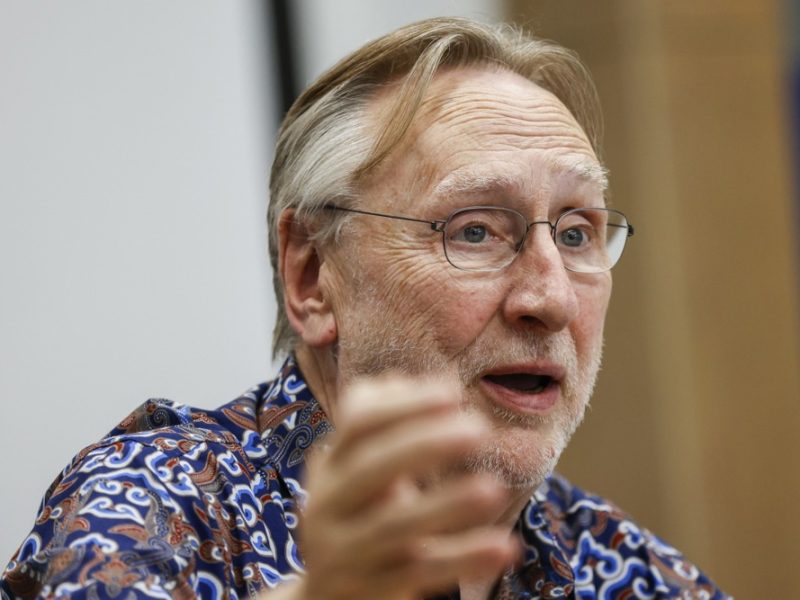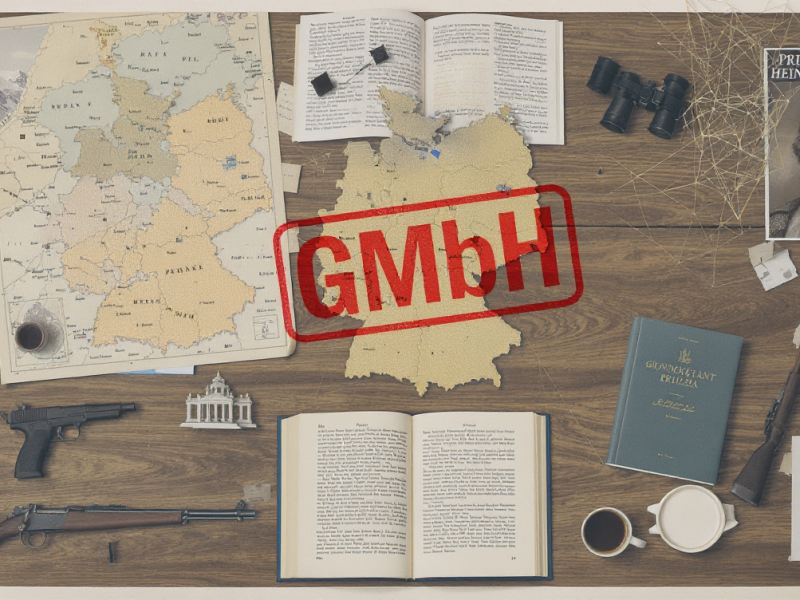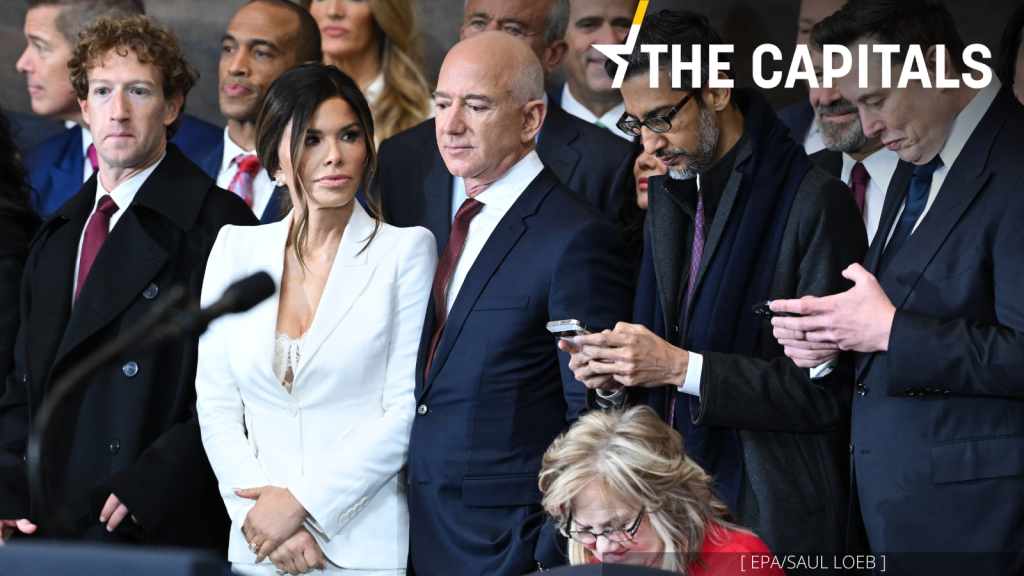Good morning, and welcome to The Capitals.
This is Eddy Wax, with Nicoletta Ionta. Got a tip, rumour or story idea? Drop us a line by email – or, for the more discreet, via Signal: @EddyWax.94
Today’s edition is powered by AIJN European Fruit Juice Association
100% fruit juice:
A unique and healthy composition that supports healthier diets across Europe. Highly regulated with no added sugar by law, recent scientific research has revealed new health benefits.
Read more about AIJN’s vision for a healthy and sustainable future here.
In the capital
As Donald Trump renewed his attacks on Europe’s tech regulation rules, which he considers censorship, the death of a French streamer suggests the opposite problem: Europe’s Digital Services Act, designed as a safeguard against online harms, proved powerless in practice.
France’s regulator was unable to stop Kick – an Australia-based platform that officials say lacked any legal representative in Europe until the incident – from broadcasting the slow and harrowing decline of streamer Raphaël Graven. His death made international headlines and sparked Parisian calls for stronger safeguards.
Prosecutors in the country launched a criminal investigation into Kick on Tuesday, examining whether it violated the DSA’s requirement to report life-threatening risks to a national regulator. The country’s digital minister, Clara Chappaz, also announced plans to sue the platform.
The case has placed the DSA under fresh scrutiny. Passed with the intention of creating a safer and fairer online environment, the system divides enforcement between national regulators for smaller platforms, like Kick, and the European Commission for giants with over 45 million monthly users such as Meta and Apple. In practice, both sides have hesitated.
About 18 months after the rules took effect, Brussels has yet to impose a single fine for content moderation breaches. The Commission’s grand test case against Elon Musk’s X has languished for more than a year.
To call the DSA a failure would be premature. Enforcement is complex and the law’s provisions remain vague. With no case law to steer them, regulators are left to improvise – even as the internet races ahead, spewing fresh hazards like AI-driven disinformation faster than Brussels can blink.
The Commission has been moving slowly, aware that any ruling would set a precedent, sketching the boundaries of how far platforms must go to blunt the risks they unleash.
Far from being a threat to free speech – as US Vice President J.D. Vance claimed in a notorious February speech – the law looks rather toothless. Yet Donald Trump’s latest tariff threat on countries with “digital taxes, legislation, rules or regulation” provoked a familiar chorus in Brussels.
Centrist MEPs leapt to defend the DSA as non-negotiable; some even called for the EU to brandish its anti-coercion instrument. The Commission repeated that digital rules were not part of the recent trade deal.
A few voices admit the shortcomings. Speaking to The Capitals, Pierre-Marie Vedrenne, a French centrist MEP, admitted that the law is “not perfect” and said lawmakers “know that we need to work on not only new legislation but on enforceability to give more tools to the European Commission side.”
By contrast, the DSA’s sister law, the Digital Markets Act, has managed to fine American giants such as Apple and Meta, though for competition breaches, not speech.
Meanwhile, Brussels looks timid. Alexandra Geese, a Green MEP from Germany, noted on LinkedIn that EU tech chief Henna Virkkunen’s only public comment since Trump’s latest broadside was to post a selfie with her dog on Instagram on International Dog Day. “It would be very much appreciated if the Executive Vice-President for Technological Sovereignty could fight for European democracy,” Geese said, “Start doing it!”
And the next frontier looms…
As AI becomes woven into daily life, users are forming romantic attachments to chatbots. Europe’s regulatory framework offers no clear limits on how far these systems can go in cultivating intimacy to keep people engaged, my colleague Maximilian Henning reports.
Macron accuses Netanyahu of ‘illegal’ Gaza push
Emmanuel Macron escalated his feud with Benjamin Netanyahu yesterday, urging the Israeli PM to abandon his “deadly and illegal headlong rush into permanent war in Gaza” in a letter, also shared with Le Monde.
Netanyahu had accused the French president of stoking antisemitism by pushing for recognition of a Palestinian state. Macron dismissed the charge as an “offence to France,” defended his government’s record fighting anti-Jewish hatred, and argued that recognising Palestine, contingent on Hamas’ surrender, was the only way to prevent endless conflict.
Macron is not alone in clashing with Netanyahu. Denmark PM Mette Frederiksen recently called him a “problem in himself” and signalled she was prepared to recognise Palestine, provided it is a democratic state. She also pledged to use the Danish EU council presidency to pressure Israel.
In Belgium, the coalition is fractured over the issue. PM Bart De Wever on Tuesday rejected Foreign Minister Maxime Prévot’s push to recognise Palestine, saying such a move would be counter-productive absent strict conditions. Prévot has threatened to block the government’s work – and create a political crisis – unless it ups pressure on Israel.
Belgian, German leaders urge caution on frozen Russian funds
De Wever and Friedrich Merz threw cold water on calls to confiscate frozen Russian assets, cautioning that such a move could backfire.
Speaking at a press conference in Berlin, De Wever insisted the billions parked at Euroclear in Belgium should remain untouched for now. “Legally, it’s not so simple,” he said, arguing the money could prove useful in future Ukraine-Russia talks. The German chancellor echoed his concern, pointing to risks for capital markets if central bank reserves are taken.
Euroclear holds over €180 billion in frozen Russian assets, both public and private, blocked by the EU after Russia’s 2022 invasion of Ukraine.
“We should keep these state funds immobilised,” De Wever said, warning that hasty moves risk spooking other countries into withdrawing their reserves. Comparing the frozen assets to a “goose that lays golden eggs,” he added that they might eventually be used in peace negotiations – but until then, it was “wise to keep the situation as it is.”
EU seeks answers after Libya fires on NGO ship
The Commission says it has requested an explanation from Libyan authorities after a coast guard boat opened fire on the NGO rescue vessel Ocean Viking in international waters. But Brussels avoided any discussion of consequences, stressing the priority was “establishing the facts.” Officials have also ducked questions on whether the EU trusts Tripoli to conduct a credible investigation.
Hundreds of rounds were fired at the German NGO SOS Méditerranée’s ship by the Libyan patrol on Sunday, causing serious damage but leaving the crew and survivors unharmed. The NGO demanded a full inquiry, noting this was not the first time: in July 2023 one of its rescue boats also came under fire. Last June, Migration Commissioner Magnus Brunner called Libyan authorities “dodgy” but insisted Brussels should still engage in dialogue with them.
The capitals
PARIS
France is bracing for fresh political turmoil as PM François Bayrou heads toward what looks like certain defeat in a confidence vote set for 8 September. With the Socialists, the far-left France Unbowed and Marine Le Pen’s National Rally united against him, Bayrou’s fall would leave President Emmanuel Macron facing stark choices: appoint another prime minister, call new elections, or contemplate relinquishing the presidency itself.
BERLIN
Germany and Canada have agreed to boost cooperation on critical minerals, as Berlin tries to wean itself off Chinese supply chains. Beijing mines around 70% and processes about 90% of rare earths, essential for the production of electric car batteries, wind turbines and computer hard drives.
ROME
The standoff between migrant rescue groups and Italy’s government worsened after Mediterranea, a civilian rescue group, defied orders to disembark 10 migrants in Genoa and instead brought them to Sicily. Interior Minister Matteo Piantedosi insisted the state alone manages rescues at sea, as officials detained Mediterranea’s ship and levied a fine.
MADRID
Spain has declared 16 of its 17 regions disaster zones as wildfires devastate vast swaths of land. PM Pedro Sánchez urged opposition parties to back a deal to confront future climate-driven crises, but the Popular Party dismissed the plan as a political manoeuvre to deflect blame.
WARSAW
Poland’s government will propose new refugee rules after President Karol Nawrocki vetoed an extension of protections that cover nearly one million Ukrainians. Nawrocki, who argued the measure was too costly, won praise from Moscow, while Warsaw and Kyiv warned the decision could have grave humanitarian consequences.
VILNIUS
Lithuania’s parliament has confirmed Inga Ruginiene as prime minister, following the collapse of the previous government in July over corruption. Ruginiene, 44, from the Social Democrat Party, pledged to maintain strong support for Ukraine and boost defence spending. But her coalition has drawn protests for including parties opposed to sanctions against Russia and sceptical of vaccines.
BUDAPEST
Hungary’s foreign minister, Péter Szijjártó, warned yesterday that his country could cut off electricity supplies to Ukraine if it continued to target the Soviet-era Druzhba pipeline, a critical conduit for Russian oil. With about 40% of Ukraine’s imported electricity flowing through Hungarian interconnectors, Szijjártó said Kyiv should “remember this” when deciding whether to bomb the pipeline.
PRAGUE
Czech Prime Minister Petr Fiala denounced the EU’s “chat control” proposal, designed to curb online child sexual abuse material, as an unacceptable step toward mass surveillance. Interior Minister Vít Rakušan backed him, saying Prague would withhold support from a plan that already lacks support across the bloc.
BUCHAREST
Moldovan Foreign Minister Mihai Popşoi warned in an interview with Euractiv Romania that Russian propaganda is ramping up ahead of the September 28 parliamentary election, citing “paid protests and orchestrated street actions designed to provoke state institutions into responses that could fuel unrest.”
Also on Euractiv

Europe’s fragile trade truce with Washington is already fraying.
Bernd Lange, chair of the Parliament’s international trade committee, suggested lawmakers could sink Brussels’ plan to drop duties on US goods, the price of persuading Donald Trump to ease car tariffs. The Commission insists tabling the motion will reduce America’s 27.5% levy, but some lawmakers see a one-sided deal.

Obscure but dangerous, Germany’s Reichsbürger movement is a network that rejects the state’s legitimacy, dreams of coups, and trades in conspiracies.
Their plots have reached parliament, ensnaring an ex-MP, and their ideas are crossing borders. From Austria to Switzerland, offshoots are taking root – and worrying Europe’s security services.
Agenda
- António Costa meets Bart De Wever in Brussels
- Emmanuel Macron, Friedrich Merz, and Donald Tusk travel to Moldova for Independence Day celebrations
- Magnus Brunner speaks at the European Forum Alpbach in Tyrol
- Manfred Weber addresses the press in Berlin on Europe’s future after US tariffs
Entre nous
EU influencer Sevim Aktas asked EU Commissioners what they’ve been reading this summer, and the answers are… telling.
Jorgensen is still buried in Dostoevsky’s The Brothers Karamazov, a brick of a novel. Roswall kept to policy terrain, tackling Jeremy Rifkin’s Planet Aqua, a meditation on water resistance. And Lahbib spent the season with ex-NZ PM Jacinda Ardern’s memoir.
Contributors: Elisa Braun, Thomas Møller-Nielsen, Jeremias Lin, Robert Hodgson, Niko J. Kurmayer, Alessia Peretti, Inés Fernández-Pontes, Aleksandra Krzysztoszek, Aneta Zachová, Catalina Mihai
Editors: Christina Zhao
